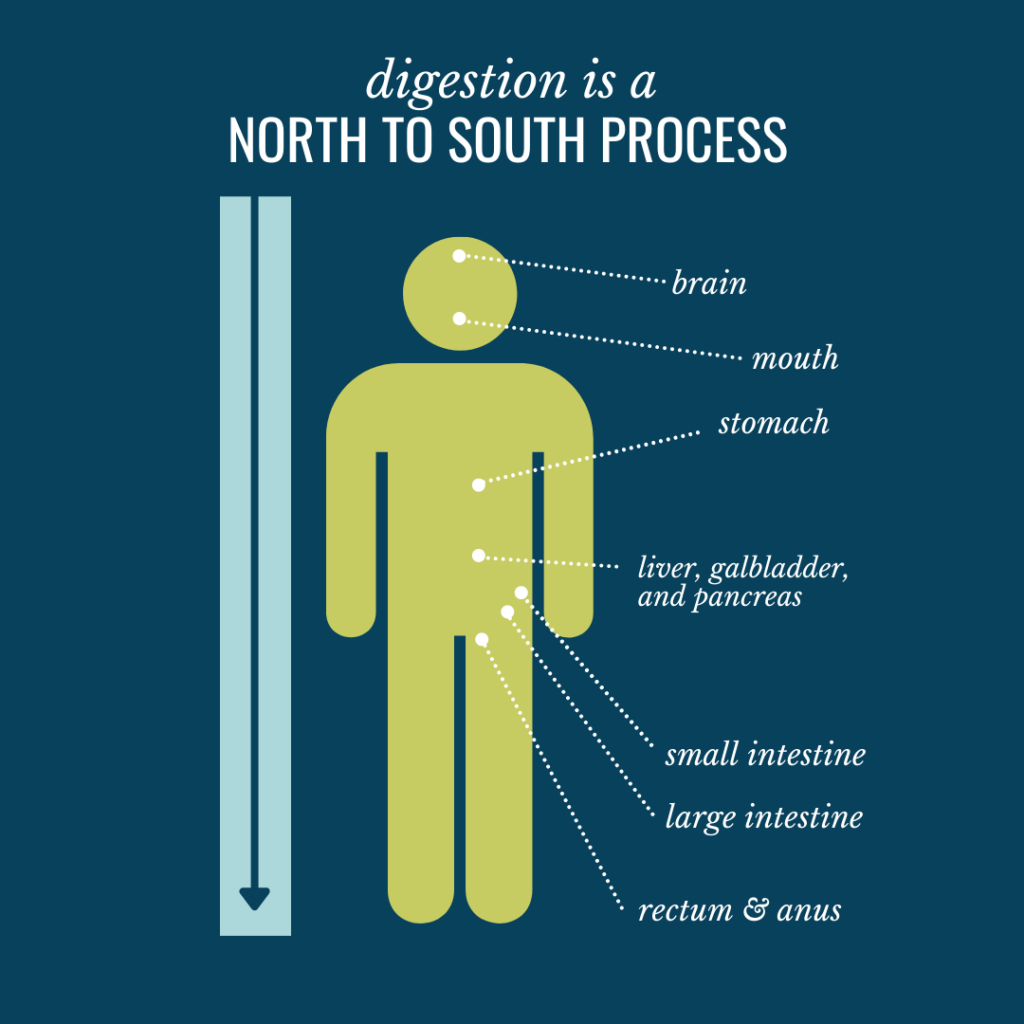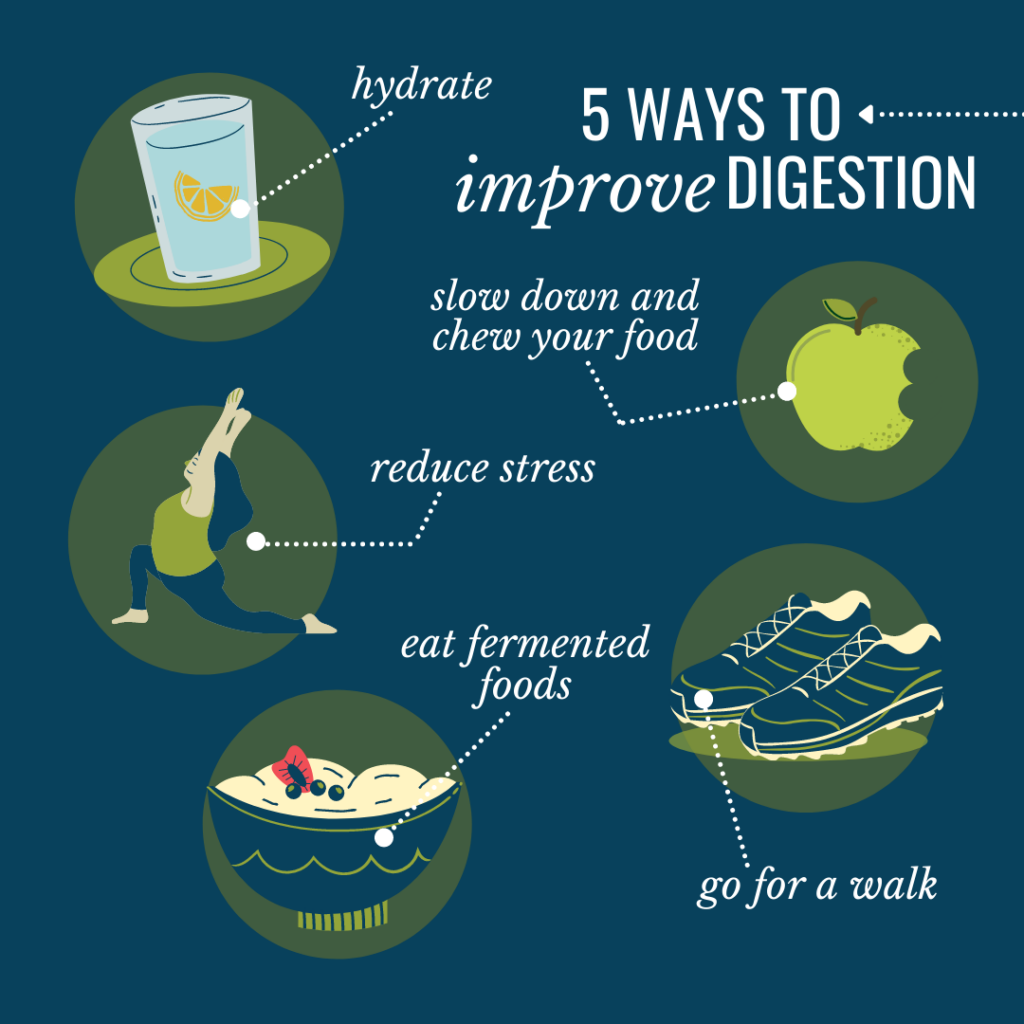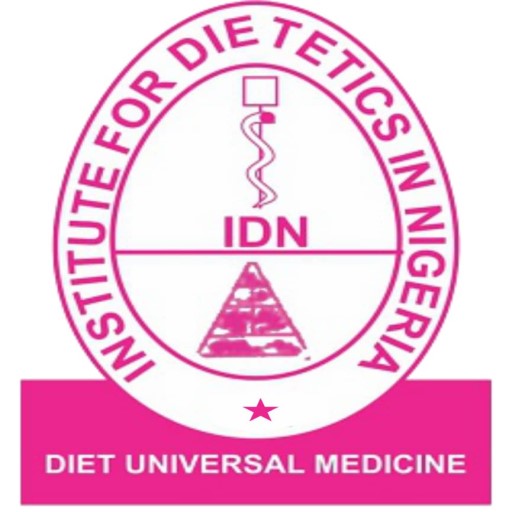They say you are what you eat, but the reality is that you’re really made up of what you digest. These may sound the same, but unfortunately, they are not always. If our digestive systems are not functioning properly, our bodies are unable to fully break down and absorb the nutrients we consume.
If we are prioritizing a nutrient-dense, whole foods diet, we want to make sure our cells are able to use all the wonderful nutrients we are providing. We’re going to give you five strategies to help you support proper digestion, but first, let’s discuss how digestion works.

How digestion works
Before we jump into solutions for supporting digestion, we think it’s important to have a baseline understanding of how it works. This understanding will connect you to why we recommend what we do, so we’re not giving you a random to-do list of behavior modifications. Let’s get to it.
Brain
Digestion is a north to south process that begins in the brain. The sight and smell of food triggers the salivary glands to begin producing saliva.
Mouth
The mouth is the physical gateway to the digestive system where mechanical and chemical breakdown of the food begins. One solute in saliva is the enzyme salivary amylase, which begins carbohydrate digestion.
Stomach
Food enters the stomach as bolus. The stomach continues the mechanical breakdown of the bolus, along with a number of chemical activities and turns it into chyme.
Small Intestine
Chyme enters the duodenum and travels through the small intestines and stimulates the production of other enzymes. This is where the bulk of nutrient absorption happens.
Large Intestine
The large intestine recycles water and waste material, which nourishes the colon cells. It captures any lost nutrients that are still available (with the help of the bowel flora) and converts the nutrients to Vitamins K/B1/B2/B12 and butyric acid. Then the remnants form and are eliminated as feces.

5 Strategies for supporting your digestive system
The strategies below are powerful tools that can help you support your digestion. Implement them into your life to keep things moving properly and fuel your cells with all the goodness that nutrient-dense, whole foods have to offer.
1. Reduce stress
Digestion works best when we are in a relaxed (or parasympathetic) state. Avoid fight-or-flight hormones like epinephrine (adrenaline) and norepinephrine (noradrenaline), which interrupt proper digestion. You can do this several ways, including taking a few deep breaths before eating.
2. Slow down and chew your food
This one is vital. Eat meals slowly and chew food thoroughly in order to break down carbohydrates and activate other enzymes before moving onto the next stage in digestion. Try not eat in the car or in front of the television as these activities tend to make us eat more quickly. Sit down and make your meal the main event!
3. Hydrate
It is important to stay adequately hydrated throughout the day so that your body can properly transport nutrients through your digestive tract. If you have trouble doing this, try finding a water bottle you love (we’re talking pretty colors, fancy straws, the whole nine yards!). It may sound silly, but if you love your water bottle, you might be more likely to carry it around with you and drink throughout the day.
4. Eat fermented foods
Besides being a delicious and fun way to variety to your diet, fermented foods also support your gut. They increase bioavailable nutrients and are easier to digest. The microorganisms they contain support overall gut health. (We wrote this blog post to help you increase the fermented foods in your diet.)
5. Take a walk
Movement is useful not only for reducing stress but also for stimulating the muscle contractions necessary for digestion. If you suffer from slow digestion, a 15-minute walk after each meal is a great way to improve digestion.



